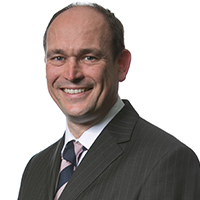The guest in this episode represents the sponsor of this show – Nigel Howitt – current chair of PSI.
After a short introduction of Nigel and his experience with PSI, we will cover the following topics:
- How can someone, that is interested become a new PSI member?
- What rules are there for students?
- If you’re a data scientist in the pharma industry- is PSI the right association?
- How to get most out of PSI?
- What are the different ways, you can become more engaged within PSI?
- How can you get involved with one of the PSI committees?
- What’s the role of the SIGs and how do you get involved there?
- What Nigel is recommending new members of PSI as first steps?
- What are your highlights of the PSI conference in Amsterdam?
Finally, we’ll also discuss how to get most out of the conference.
About Nigel Howitt
Nigel is the Global Head and Executive Director of Biostatistics at Covance, covering Phases I to IV. His department consists of 100 statisticians, based in US, UK, France, Spain, Italy, China and Australia. He joined Covance in September 2016.
Nigel has worked in the pharmaceutical industry for leading global CROs for 24 years. He started his pharma career at Parexel as an Assistant Statistician, and following a number of growth promotions, became the Manager, Biostatistics in 1999. In 2004, Nigel joined PRA Health Sciences as their Director, Analysis and Reporting (which consisted of Biostatistics, Programming and Medical Writing), initially for UK and later for Europe. In 2009, he was appointed Global Head of Biostatistics for PRA, where he led a department of 50 Biostatisticians and DMC (Data Monitoring Committee) Specialists. The department reported Phase I to IV studies, DMCs and data integrations.
Nigel is active in professional statistical organizations. He was the President of EFSPI (European Federation of Statistics in the Pharmaceutical Industry) between 2008 and 2010, and is currently the Chair of the Board of Directors of PSI (Statisticians in the Pharmaceutical Industry).
Nigel has Bachelors in Mathematics and Statistics from Bradford University (UK) and a Postgraduate Diploma in Mathematical Statistics from Cambridge University (UK).
Never miss an episode!
Join thousends of your peers and subscribe to get our latest updates by email!
Get the

